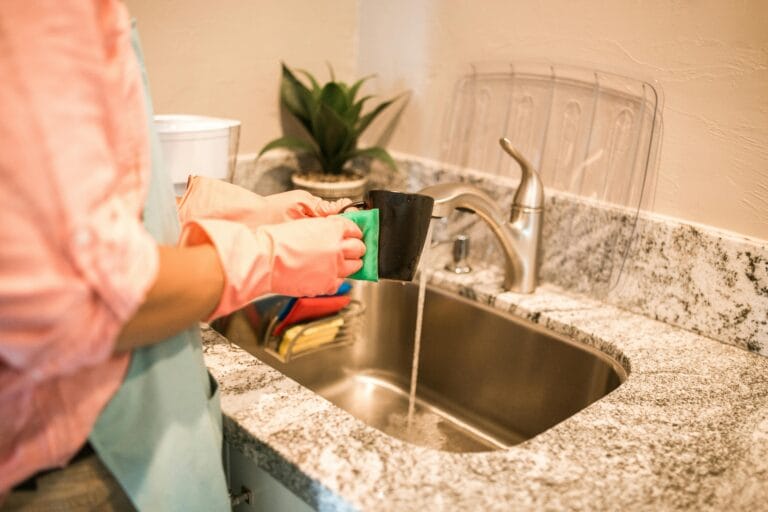Top 10 Red Flags to Watch Out for When Interviewing Domestic Workers in Nairobi
Introduction
It was a hot Thursday afternoon in Nairobi when I found myself in the middle of yet another interview for a house manager. Over the years, I’ve met countless candidates from baby sitters fresh from the village to experienced nannies who’ve worked for high-profile families in Dayburg and Westlands. But if there’s one lesson I’ve learned, it’s this: there are red flags to watch out for when interviewing domestic workers in Nairobi. In fact, the red flags to watch out for when interviewing domestic workers in Nairobi can mean the difference between hiring a dependable maid or living to regret your decision. If you ignore these red flags to watch out for when interviewing domestic workers in Nairobi, you might end up with more problems than you started with.
Top Red Flags to Watch Out for When Interviewing Domestic Workers
1. Too Eager Without Asking Questions
When a candidate agrees to every task without hesitation or fails to ask questions about working hours, duties, or pay, it’s not always a good sign. A professional nanny or maid knows her worth and will want to clarify the details. Silence can mean desperation and desperation can lead to early resignations.
2. Inconsistent Work History
One thing I’ve learned from Nairobi’s domestic worker market is that a résumé with gaps or multiple short-term jobs should be handled with caution. Unless there’s a clear explanation, such as relocating with an employer, this might signal commitment issues.
3. Overly Negative About Previous Employers
During one interview, a candidate spent 15 minutes complaining about her former boss in Dayburg. While she might have had valid grievances, an overly negative tone is a hint that she might not adapt well to new environments or manage conflict professionally.
4. Avoiding Eye Contact
Trust is a cornerstone when hiring a house manager or baby sitter. If a candidate avoids eye contact, appears shifty, or fidgets excessively, it might suggest dishonesty or discomfort. Of course, shyness is different, but patterns matter.

5. Unwilling to Provide References
A reliable domestic worker, whether a maid, nanny, or cleaner, should have at least one credible reference. Refusal or vague excuses about why they can’t share contact details is a major red flag.
6. Lack of Basic Skills for the Role
Once, I interviewed a “professional nanny” who couldn’t change a diaper properly. Skills matter. A house manager who claims to cook but burns simple ugali might not be telling the truth about their abilities.
7. Unrealistic Salary Expectations Without Experience
Some candidates ask for high pay with little or no relevant experience. While everyone has a right to negotiate, a domestic worker who demands a seasoned house manager’s salary without the track record may not be a practical hire.
8. Reluctance to Do a Trial Day
A trial day allows you to see how a candidate handles real tasks. In my experience, a domestic worker who refuses or seems uncomfortable with a paid trial might be hiding a lack of skill or commitment.
9. Poor Personal Hygiene
If a maid or baby sitter shows up to the interview untidy or with poor hygiene, it may reflect how they will handle household cleanliness. This is especially crucial in homes with children.
10. Rushed to Start Without Proper Agreements
Finally, beware of domestic workers who insist on starting immediately without signing a contract or agreeing on terms. Contracts protect both parties, and skipping this step can lead to misunderstandings.
The Bottom Line
Hiring the right domestic worker in Nairobi, whether it’s a nanny, house manager, or maid, requires keen observation. You’re not just looking for someone to clean, cook, or watch over your children; you’re inviting them into your private space. By spotting these red flags early, you save yourself stress, money, and heartache down the road.
In a city as busy as Nairobi, with areas like Dayburg bustling with job seekers, you’ll meet all kinds of candidates. Trust your instincts, but back them up with clear vetting processes. A good hire will make your home run smoothly; the wrong one could turn your life upside down.
Frequently Asked Questions
Ask for written references, call previous employers, and, if possible, meet in person. You can also check with local domestic worker agencies or Dayburg-based placement services.
Spotting red flags early helps you avoid hiring a domestic worker who may lack skills, reliability, or integrity , saving you from stress, extra costs, and potential safety issues.
Yes. A trial day helps you assess real-life skills and attitude, whether it’s cleaning, cooking, or childcare. It’s one of the best ways to confirm if a candidate is the right fit.
Yes, but be extra cautious. If you hire privately, you’ll need to do your own background checks, verify skills, and ensure proper agreements are signed before work begins.
Legal & Regulatory Guidance in Kenya
Understanding Legal Aspects of Hiring Domestic Workers in Kenya
A comprehensive blog detailing legal requirements such as written employment contracts, minimum wages, working hours, and the importance of contributions to NSSF and NHIF. It also references International Labour Organization protections (ILO convention 189). Hire Best Kenyan MaidsGuide to Hiring Employees in Kenya
Covers broader labor law essentials in Kenya—including contracts, minimum wages, working hours, benefits, and termination. While not specific to domestic staff, it provides a solid legal framework that applies.Recruiters LineUp
Related Topics
1. Stress-free guide on hiring a reliable Househelp in Kenya
2. Life as a Househelp in Kenya: What they wish employers knew.
3. Why more Kenyan families are choosing dayburgs over Live-In Nannies.
4. Important questions to ask before hiring a househelp in Nairobi.


